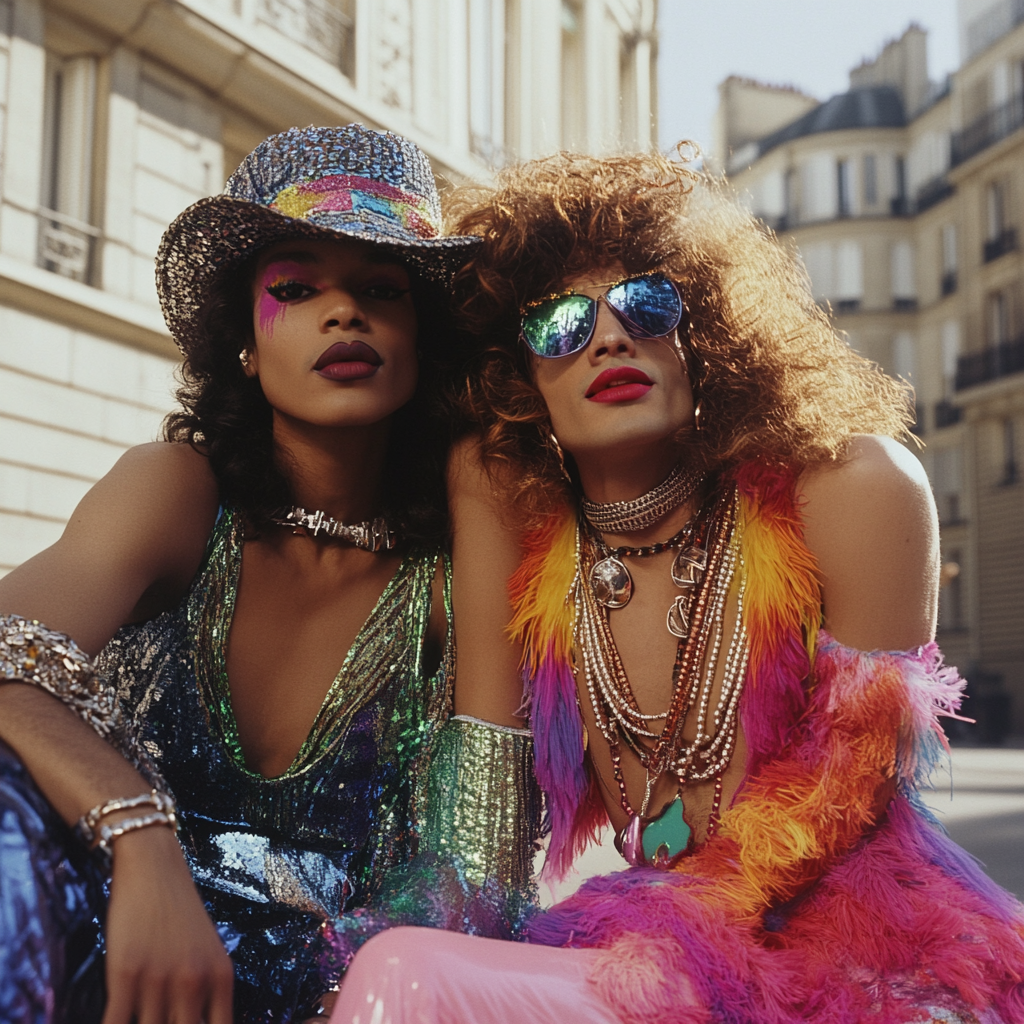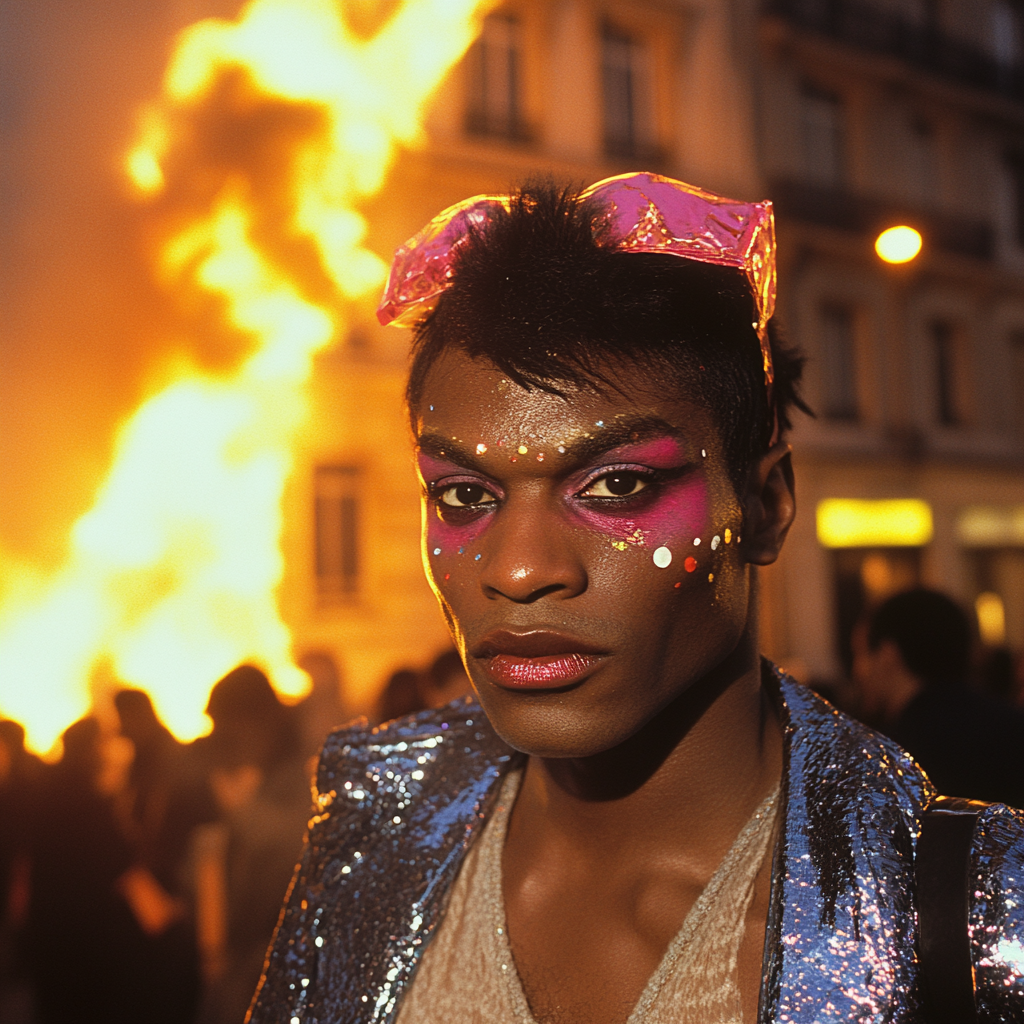"Paris is Burning" remains an iconic documentary, shining a light on New York's 1980s ballroom and drag scene, particularly focusing on the vital role Black and Latinx queer people played in building these spaces. It beautifully captures a self-sustained culture, offering community and family for those often rejected by their own. The film follows legendary figures like Willie Ninja, Angie Xtravaganza, Dorian Corey, and Pepper La Beija. The Netflix show Pose, you'll recognize its roots in this same history. Steven Canals, the creator of Pose, openly credits the documentary as a major influence.
However, while Paris is Burning has earned its iconic status, it isn't without its controversies. The film was directed by Jennie Livingston, a white woman who is of an upper middle class background, who has never been a part of ballroom culture. As a result, some feel that the film occasionally crosses into exploitative territory, pushing its subjects into revealing uncomfortable or overly intimate details. The fact that this crucial story of Black and Brown queer lives was filtered through the lens of a white, upper-middle-class filmmaker raises important questions about who gets to tell which stories-and how.
This issue isn't just limited to Paris is Burning. It speaks to a broader trend in documentary cinema where marginalized communities are often portrayed through the outsider's lens, even when the filmmaker's intentions are good. Today, I want to introduce two films that challenge this trend and put storytelling back into the hands of those within the community.

The first film is Tongues Untied (1989), an experimental documentary by Marlon T. Riggs. Unlike Paris is Burning, this film was created from within the community it portrays. Riggs was a filmmaker, poet, educator, and activist who focused on the intersection of race and sexuality as a gay Black man. His documentary addresses the oppression faced by Black queer men, particularly during the height of the HIV/AIDS crisis, a time when queer people-and especially queer people of color-were demonized and marginalized.
Tongues Untied doesn't just tackle external forces of racism and homophobia, though; it also looks inward, examining how these societal pressures can affect relationships within marginalized communities. It's a raw, poetic exploration of love, anger, and the messy realities of community-building. Though Tongues Untied faced backlash-mostly from conservative circles seeking to sanitize history-it stands today as a groundbreaking work that refuses to separate identity from politics.

The second film I want to highlight is Meeting the Man: James Baldwin in Paris (1970), directed by Terence Dixon. In this documentary, the legendary writer and activist James Baldwin shares his reflections on being "a writer in revolutionary times." Born in New York in 1924, Baldwin's essays, novels, and plays-like The Fire Next Time-remain some of the most poignant critiques of race and civil rights in America.
What's fascinating about this documentary is how Baldwin turns the camera's gaze back onto the filmmakers. Though the intention behind the film was to de-politicize Baldwin and focus on him as a creative writer, Baldwin skillfully reverses the dynamic. Throughout the film, he challenges the white filmmakers and insists that the artist's role is inherently tied to revolutionary politics. He refuses to allow the separation of his art from his activism.
Both Tongues Untied and Meeting the Man offer critical alternatives to the outsider perspective that often dominates documentary cinema. These films show what happens when people tell their own stories-how the narrative shifts, and how the subjects of the film are no longer objects of study but active participants in shaping their own representations.
I want to leave you with a favorite poem of mine by James Baldwin, called Youth. It beautifully encapsulates the passion, struggle, and resilience that both these films convey. In reclaiming the gaze, these filmmakers, like Baldwin, remind us that to tell one's story is itself an act of revolution.
YOUTH
Beloved, do not warn me
Of birds too highly flown;
Your word is not enough for
me-
I must have my own.
I was young and did not know
Anything could hurt me like that.
I was gay, and failed to see
What there was to torture me.
I may be destroyed, but I
Shall not let this life go by.
(No, no!-destroy these tales
Of birds too highly flown.
Your word is not enough for
me-
I must have my own!)
Desta - Decolonial city tour
+49 152 2108 6724
info@dekolonialestadtfuehrung.de or info@decolonialtours.com
Are you a journalist and interested in writing about us? Please feel free to contact us.
Imprint | General Terms and conditions | Privacy policy | © Copyright 2025 deSta- Decolonial city tour